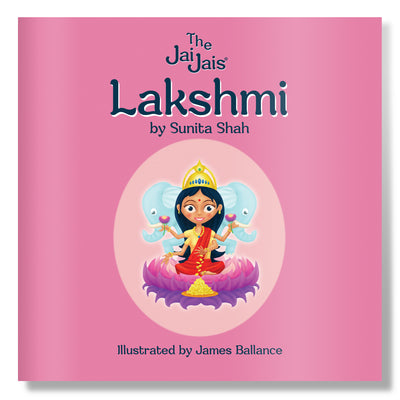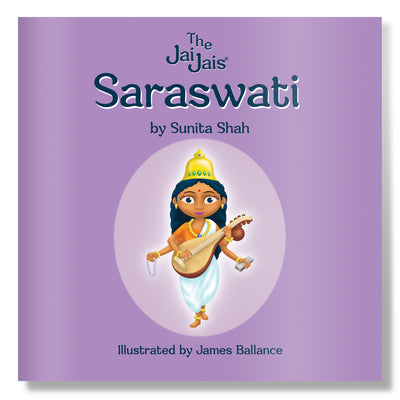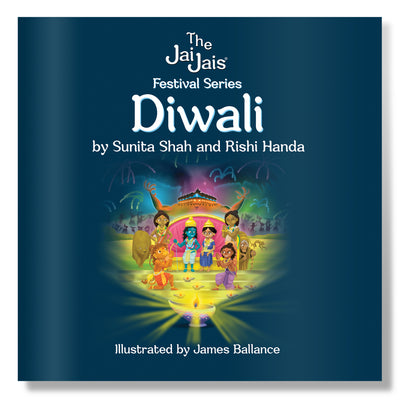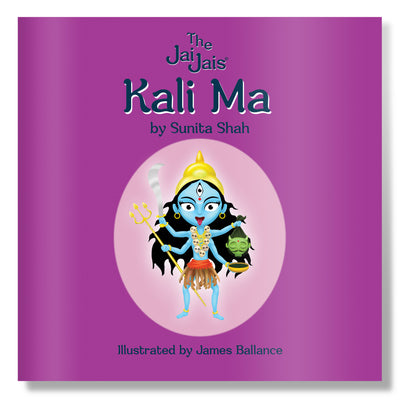A baby is more likely to try to put a book in their mouth than to turn its pages, this is why our Baby Jai Jais board books are so robust! For little hands and mouths. This doesn't mean it's too soon to make reading a part of your little one's routine. Experts say exposing babies to books in the first year is crucial to their intellectual and emotional growth. In fact, research shows that reading to infants can help jump-start brain development and can even make them more receptive to learning and developing language.
“Reading a book to your new-born is a one-on-one activity that you can really turn into a special time with your baby,” says Mary Ann Abrams, Medical Director. “It exposes the baby to the sound of your voice, which is soothing for them.” Research has shown that reading to babies can help parents develop the bond with your child and feelings of intimacy.
Hearing words helps to build a rich foundation of words in a baby’s brain. Children whose parents frequently talk/read to them know more words by the age two than children who have not been read to. Children who are read to during their early years are more likely to learn to read at the age expected.
I have been a Speech and Language Therapist for over twenty years, and in my practice observed the importance of books and the direct relationship to language development. "When you read aloud to your baby, you're teaching them to recognise that different sounds have different meanings, and that's the foundation of speech and comprehension," says Marilyn Segal, PhD, dean emeritus of the Institute for Early Childhood Studies at Nova South-Eastern University, in Fort Lauderdale.
We have designed our Baby Jai Jais books, to make them fun and accessible to babies, introducing them to key vocabulary in their Early Years, about Hindu gods, goddesses and festivals. Picture books with bright, simple images provide visual stimulation that enhances your child's cognitive skills. Pointing out objects and talking about them with your baby, "Wow Durga has a Lion!”, helps them associate names with specific objects and shows them that what they see in books also can exists in real life, as well as developing imagination and abstract concepts, discovering something new all the time.
What's more, sharing story time with an infant can boost her emotional development. "Being held on your lap and hearing your voice during regular reading sessions gives your baby a sense of stability and security," says Betty Ann Watson, EdD, director of Early-Childhood education at Harding University, in Searcy, Arkansas. "It also creates a positive association with books, and that encourages a lifelong love of reading."
Children’s attention and listening skills are developing, so they do not always sit for lengthy periods of time. While some infants sit still and listen intently, many others wiggle and get distracted or try to pull the book out of your hand. Don't worry if your baby isn't attending when you first start reading to them. "With a little practice and patience, most babies eventually learn to settle down," Dr. Watson says. By incorporating calm, unhurried reading into your little one’s night time routine, you’ll be helping to set the stage for a restful night’s sleep.
The key is to make story time a fun activity for your baby and for you. Here are some fun ways to do this:
Get into a Groove
Make it a habit to read several times during the day when you're in a relaxed mood and your baby is receptive to stories, such as after a nap or just before bedtime. Hold the book about 12 inches from their face so they can easily see the pictures. Start reading to them for just a few minutes, and gradually increase the time to get him used to the idea of looking at books. And remember, it's never too early to start. Even a new-born will enjoy cuddling in your arms and listening as you talk.
Tune Up Your Tone
When reading to your baby, use an exciting, expressive voice. Speak slowly and clearly, pronounce each syllable so they can hear the different sounds of language. Researchers have found that babies prefer and learn best from a singsong, exaggerated tone, which many parents use when communicating with their babies, toddlers and infants.
Read and Reread
Read your baby's favourite books, and repeat some of the words over and over. "Repetition reinforces phonetic sounds and helps your baby learn language," explains Ruth Peters, PhD, a clinical psychologist in Clearwater, Florida. Reading familiar books also makes your baby feel comfortable, confident, and secure because he knows what to expect next.
Follow Baby's Lead
Let your baby hold, touch, and play with the book. At around 8 months, help her learn to turn the pages. Stock your library with baby books made of sturdy cardboard, heavy-duty cloth, or soft plastic because they stand up to chewing, grabbing, and tossing. Even if you read only a few words at each sitting, your baby will benefit -- and perhaps even develop a lifelong affinity for books.
(Ref: Pamela Kramer & Beaming books)
The Jai Jais board books have been beautifully created to capture a baby’s interest during their early months in the big wide noisy and visual world. The original characters from the series have been carefully and lovingly transformed into younger characters, to introduce and engaged children from a very early stage. The pictures are set on a white background, with a boarder so they are visually appealing and capture a child’s attention. The images are beautifully textured rather than flat images to learn and explore.
The vocabulary has been carefully chosen to replicate the words the children will be introduced to in the next series, so they are also building their knowledge and bringing the vocabulary forward to the next stages of The Jai Jais.
Enjoy precious story tines with your little one. They will remember this for the rest of their life.












